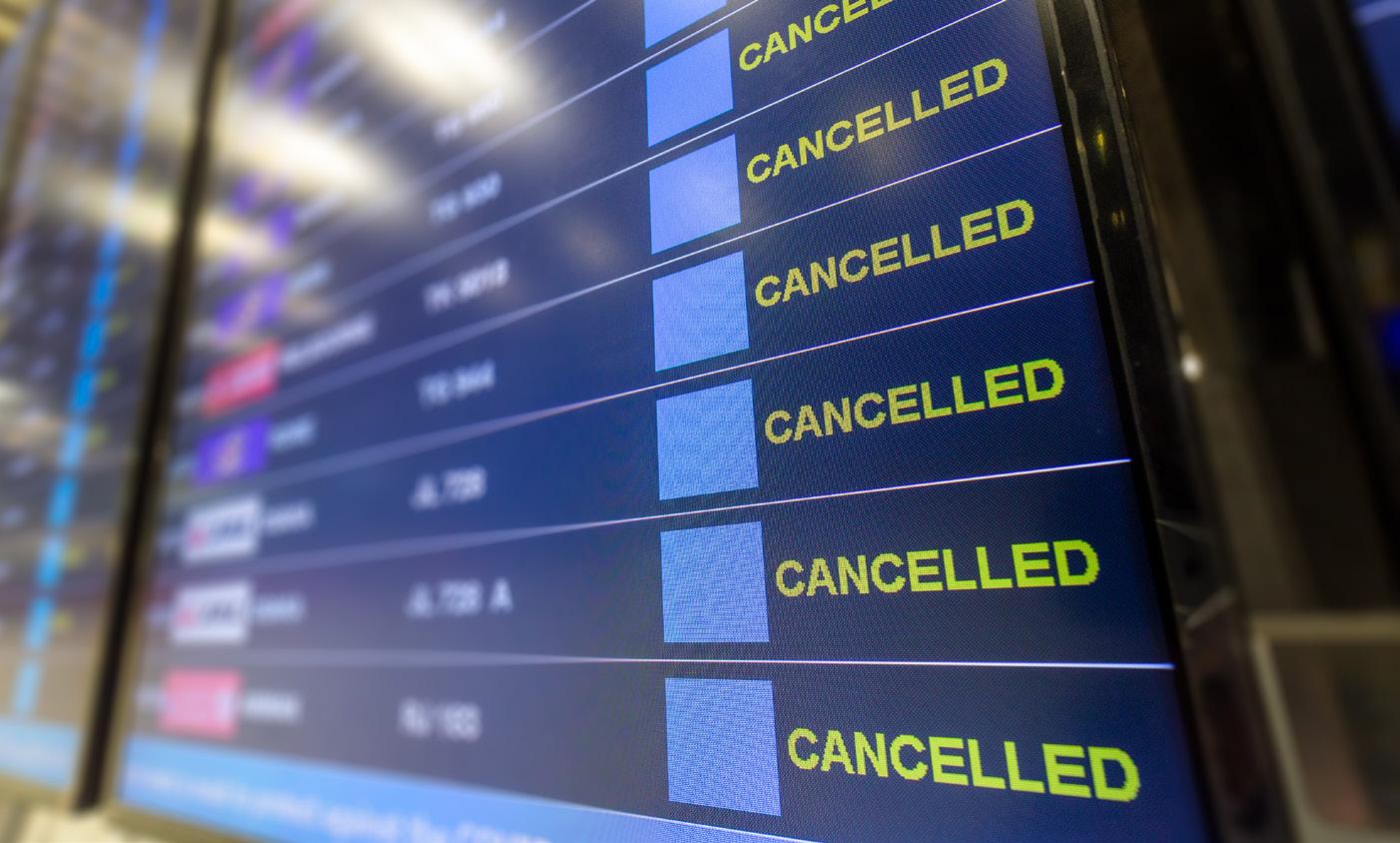
13 minute read
Former Lloyd's exec joins Delta
Kiwi underwriting agency Delta Insurance Group has hired Kent Chaplin, a former senior executive at Lloyd’s of London, as its chief operating officer.
Chaplin is a former chief executive and regional head for Lloyd’s in Asia-Pacific, and has sat on the firm’s advisory board since 2019.
Delta Group managing director Ian Pollard says the decision to create a COO role came as the company reviewed its long-term strategy and the future of the insurance sector.
“Last year, we saw very positive growth for Delta here – almost 25% - and double that in the AsiaPacific region, despite the impact of COVID-19,” he says. “That growth has encouraged us to significantly broaden our footprint in Asia-Pacific and beyond – becoming more global in our outlook.”
Pollard says the appointment signals the insurer’s ambitions to grow its international footprint. “When we looked at the long-term directions and needs of the business on the global stage, what he offered was a perfect fit. We see his appointment in this more direct, full-time role as a key to taking us to that next level and we’re thrilled to have him on the team.” global insurance world and culture – regulatory, technical and claims knowledge – from his time with Lloyd’s that will be invaluable to Delta as we grow. We feel a bit like a football team that has signed a marquee player who will help us reach the Premier League.” Chaplin adds: “We share a view on the vast opportunities for the industry and a desire to provide industry leadership in a complex and risky world where the pandemic is one of many challenges and where the continued protection of customers is paramount.
“We also share a passion for specialist insurance, such as the niche products and services Delta has become well-known for, as well as a heritage for those products, which were, in many cases, founded by Lloyd’s.” Chaplin believes there are three main challenges facing the industry.
“How to remain relevant to society in a rapidly changing risk and regulatory environment; how to ensure our products are fit-for-purpose for customers and optimise customer outcomes when requirements often change unpredictably; and how to embrace the global technology revolution to ensure the business is easy to access, responsive and efficient.”
Insurer wins out on handbag dispute
Acouple were travelling by train through Europe. In a crowded train station, they needed to transfer trains and the woman accidentally left her handbag on the luggage rack. They did not realise she had lost her handbag until they arrived at the airport, just before boarding the plane to fly back to New Zealand.
The man contacted the lost baggage office at the train station, but the handbag was not there. He lodged an insurance claim for:
• the handbag, purchased in 2013 for $920 but now valued at $1,150 • the wallet, a new similar wallet cost $688 • perfume, $219 • a driver’s licence, $38.20 • cash, $300.
The insurer accepted the claim for the handbag and the driver’s licence but depreciated the handbag by 20% for every year since its purchase in 2013. The insurer declined the claim for:
• the wallet because there was no proof of the original purchase price and • the cash, because the policy only covered lost cash if stolen directly from the person or from a locked safe.
The husband did not accept the depreciation on the handbag was reasonable. They had provided proof to the insurer that the replacement handbag now cost $1,150, indicating that this was an item that appreciated rather than depreciated in value over time. The man felt the insurer should compensate them for the $688 it cost to buy a new wallet.
The man also complained that the insurer had not accepted the perfume claim. The woman had purchased three bottles of perfume on their way to Europe and only had one combined receipt for all three perfumes. They were unable to identify which item on the receipt related to the lost perfume, but said this should not have affected the claim.
The insurer took another look at the claim and realised they had accidentally omitted the perfume from the claim and agreed to pay $219 for the perfume. However, the insurer maintained their calculation of the handbag claim was correct and explained how the depreciation had been calculated.
The man accepted the assessment of the perfume, the driver’s licence, and the cash but continued to dispute the assessment of the handbag and wallet. He complained to FSCL.
FSCL agreed the insurer had correctly assessed the claim. The dispute resolution service explained to the man that although the handbag might have increased in value, the insurer had correctly assessed the claim. The policy clearly explained that if an item is more than two years old, the insurer will apply depreciation at the rate of 20% per annum from the date of purchase.
The policy also stated that proof of purchase was required for items worth more than $500. Because the husband had submitted a claim of $688 for the lost wallet the insurer was entitled to ask for the original purchase receipt. As he could not locate the receipt, the insurer could decline the claim.
The man accepted FSCL’s view that the insurer had correctly assessed the claim.
Bahamas blunder
In November 2019, a woman booked a trip to the Bahamas. She was scheduled to fly from New Zealand to Houston on 12 April 2020, and then onwards to Nassau, the capital of the Bahamas. The following day, she would fly from Nassau to Freeport, where she would stay for a week, before returning to New Zealand on 20 April 2020.
On 1 April 2020, the woman’s travel agent informed her that her flights between New Zealand, Houston and Nassau had been cancelled, but the airlines had issued her a refund.
She lodged a claim with her travel insurer for the Freeport flights, which hadn’t been cancelled, but couldn’t be used since she couldn’t get to Nassau.
The woman’s insurer declined her claim due to an exclusion in her policy for claims arising from government interference. The insurer said New Zealand’s lockdown, which began on 25 March 2020 and continued throughout April 2020, would have interfered with her trip.
The insured complained to FSCL because she thought the government interference exclusion shouldn’t apply to her claim.
She said the laws in place in New Zealand on 1 April 2020, that were enforcing New Zealand’s lockdown, had been determined as ‘unlawful but justified’ by the courts following the ‘Borrowdale case’ about the legality of New Zealand’s lockdown.
She argued that since the government restrictions stopping her from travelling were technically unlawful at the time her trip was cancelled, there was no government interference with her trip.
The insured also thought it was unfair for the government interference exclusion to apply in the absence of a pandemic exclusion, since ultimately her trip was cancelled due to Covid-19.
When investigating the complaint, FSCL found that the airline operating the New Zealand-Houston-Nassau flights had issued a press release on 16 March 2020 publicly announcing an 85% reduction in their international network due to reduced demand. In this announcement, the airline confirmed they would not be operating flights between New Zealand, Houston and Nassau in April 2020.
Although the airline didn’t formally cancel the woman’s flights until 1 April 2020, FSCL thought the disruption to the trip rose when the airline issued their press release on 16 March 2020, at which time New Zealand’s lockdown hadn’t been announced.
FSCL issued a preliminary decision upholding the complaint, because it thought the government interference exclusion shouldn’t apply to exclude the insured’s claim.
In FSCL’s view the claim for the George Town flights arose from the airline cancelling her flights from New Zealand to Nassau due to reduced demand on 16 March 2020, not government interference with her trip.
FSCL said the media release was clear and detailed about which flights were being suspended in April 2020.
It thought it was unlikely the airline would reverse their decision, and, even if they did, it was unlikely that the situation would change for the better so they could expand their network again by April 2020.
FSCL found it was reasonable that the formal cancellation was slightly delayed, since the airline would have had thousands of passengers to contact.
FSCL thought it would be unfair for the outcome of the complaint to turn on the length of the airline’s delay, as it would come down to luck whether the airline notified the insured of the cancellation before or after any government interference arose.
FSCL issued a final decision upholding the complaint.

Cancer not a pre-existing condition

Awoman had suffered from indigestion for years and had, from time to time, taken prescription medication to relieve the symptoms. In November 2019, she went to her doctor because she was experiencing heartburn and pain on her first mouthful when eating.
The woman’s doctor prescribed the same medication, ordered some blood tests, and told her to come back if she did not improve. The blood tests returned a normal result.
About a week later, the woman and her husband booked a trip to Europe and purchased travel insurance.
Towards the end of December 2019 the woman found that food was ‘sticking’ when she tried to swallow.
She returned to her doctor who immediately referred her to a specialist, concerned that she might have cancer. In January, the specialist unfortunately diagnosed her with cancer, and she started treatment.
On her doctor’s advice, she cancelled her trip. She submitted an insurance claim for the lost accommodation and travel costs. When the claim was declined, she complained to FSCL. The insurance policy excluded cover for loss caused by a preexisting medical condition. The insurer said that, because she had been to her doctor with signs or symptoms that later proved to be cancer, this was a pre-existing medical condition and not covered by the policy.
The woman said that when she went to the doctor in November, she thought she had indigestion.
Although the doctor had told her to come back if the symptoms did not improve, she said that doctors always say that, and there was no suggestion that her doctor thought she might have cancer.
As she had had indigestion in the past, the medication she had been prescribed was not new for her. She did not think there was any reason to tell her insurer about what she considered to be a routine visit to her doctor that satisfactorily resolved her problem. FSCL looked at the woman’s medical records and could not see any suggestion that the doctor thought her symptoms were anything more than a reoccurrence of her indigestion.
FSCL also looked at the questions the woman was asked as part of the medical questionnaire in the insurance application process.
She was asked: “Do you have any undiagnosed signs or symptoms where you have yet to seek medical opinion, or are under investigation, or are awaiting specialist opinion?”
She had answered, “No”, and the dispute resolution service considered this was the correct answer.
FSCL asked the insurer to reconsider the claim.
The insurer decided to overturn their decision to decline the claim and to pay the woman for her loss.
The insurer considered there was enough doubt around her visit to the doctor in November for them to be satisfied that both the patient and doctor believed the symptoms were a recurrence of indigestion, which would be covered by the policy.
FSCL said: “It is often difficult to know how much an insurer wants to know about any pre-existing medical conditions you have. It is best to err on the side of caution and tell insurers about any recent visits to your doctor, any medical appointments you are waiting for, and any medications you are taking.”
Storm claim upheld
Mr and Mrs A had cover for their house with the insurer. In January 2018, a significant storm event caused damage to the house. A couple of weeks later, a toilet at the house overflowed, associated with the cleaning of the septic tank after the storm.
Mr and Mrs A made a claim with the insurer for the damage. The insurer accepted the claim.
Between February 2018 and February 2019, there were ongoing communications and discussions between Mr and Mrs A and the insurer about the required scope of works to repair the damage.
Mr and Mrs A made a complaint on the basis that the insurer’s scope of works did not cover all the storm related damage. They also complained about the delay in settlement. The case manager’s assessment The policy specified that the insurer would pay Mr and Mrs A the estimated reasonable cost to repair the damage.
The case manager spoke to Mr and Mrs A and supported them to obtain a builder’s report and quote to repair the storm related damage. The builder’s quote was significantly higher than the cost estimate the insurer had relied on to cash settle the claim.
The insurer reviewed Mr and Mrs A’s builder’s report and quote. On the basis of the quote, the insurer agreed to increase the claim cash settlement payment by a further $62,994.97.
However, there remained outstanding items in dispute. Based on the available information, the case manager determined that the insurer was required to cash settle the claim based on Mr and Mrs A’s builder’s quote, less deductions for the fences, beach hut and septic tank.
The insurer was required to include temporary accommodation and cleaning in the cash settlement. This amounted to $30,134.90 in addition to the $62,994.97 already offered by the insurer.
The insurer was not required to contribute more than 50% of the fence cost, or survey report cost, because Mr and Mrs A had not established the brick fence was located independently within their boundary, and was not subject to the Fencing Act 1978.
The case manager outlined the process Mr and Mrs A and the insurer should follow to finalise the claim. This included the appointment of an independent builder to conduct a site inspection of the house when repairs had commenced, to determine if there was any hidden storm damage.
The builder would also provide an opinion on the required repairs to the beach hut and fences.

THE CASE MANAGER'S ASSESSMENT:
The policy specified that the insurer would pay Mr and Mrs A the estimated reasonable cost to repair the damage.
Covid travel dispute settled

In January 2020, Mr B arranged cover for a trip to Bali, between 5 April 2020 and 17 April 2020.
In February 2020, Mr B cancelled the trip, due to the outbreak of Covid-19.
Mr B made a claim to the insurer for reimbursement of his airfares and accommodation costs.
The insurer relied on the pandemic exclusion in the policy to decline the claim. Mr B made a complaint on the basis that he arranged the policy before he was aware of the Covid-19 pandemic. THE CASE MANAGER’S ASSESSMENT:
The case manager reviewed the wording of the pandemic exclusion and noted that it was broad.
The pandemic exclusion included claims related to both a “likely pandemic” and “the threat” of a pandemic.
The case manager explained to Mr B that the pandemic exclusion applied to the circumstances of his claim.
The cancellation of the trip was due to Covid-19, which was a “likely” pandemic in February 2020 and officially declared a global pandemic on 12 March 2020.
Following discussions between the Case Manager and the insurer, the insurer offered to cancel the policy and reimburse Mr B’s premiums. Mr B accepted the offer in full and final settlement of the complaint.









